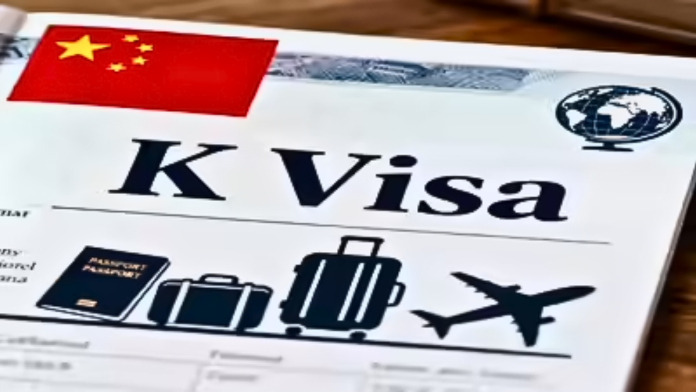China has introduced a new visa program to lure skilled professionals from around the world. The move is seen as a way for Beijing to compete with the United States in the global race for talent in science and technology. The new visa, called the K-visa, aims to make it easier for foreigners to work in China, especially in high-tech industries such as artificial intelligence, semiconductors, and robotics.
Simplified Access for Foreign Professionals
The K-visa was launched last month and is designed to attract foreign experts in science and technology fields. Unlike other Chinese visa programs, the K-visa does not require applicants to have a job offer before applying. This feature makes it more flexible and appealing to professionals seeking international opportunities.
The new K-visa complements existing programs, such as the R-visa, which also targets highly skilled foreign professionals. The R-visa has stricter requirements, such as needing a confirmed job offer or meeting specific salary and qualification thresholds. It reflects China’s desire to bring in foreign talent to fill gaps in its technology workforce. Skilled workers from countries like India and Southeast Asia have already expressed interest in the program.
China lures Indian techies with new K visa as U.S. slams H-1B with $100,000 price tag
China’s effort comes at a time when U.S. visa programs, like the H-1B visa, face uncertainties. Stricter immigration policies and higher application fees in the U.S. have caused some foreign professionals to consider alternatives. Many students and workers who previously aimed for the U.S. now see China as a possible destination for career growth.
Filling Skill Gaps and Encouraging Innovation
China has been losing talented individuals to countries like the U.S. and Europe for decades. Many foreign-educated Chinese students chose to stay abroad after completing their studies. The government is now trying to reverse this trend by offering incentives and easier pathways to work in China.
Business backlash explodes — U.S. Chamber sues Trump over shocking $100,000 H-1B visa fee
The K-visa is part of a larger effort by the ruling Communist Party to lead in advanced technologies. The government has invested heavily in research and development in areas such as AI, semiconductors, and robotics. By attracting foreign professionals, China hopes to fill skill gaps and benefit from new ideas and international perspectives.
Despite high youth unemployment in China, especially among graduates, the government sees foreign talent as a way to boost innovation. State-backed news outlets have highlighted the potential benefits of bringing skilled professionals into the country, stating that they can help meet the growing demand for technology experts.
Challenges and Considerations for Foreign Workers
While the K-visa makes it easier for foreigners to work in China, there are challenges. Language and cultural differences can make daily life and work more difficult. Internet restrictions, known as the “Great Firewall,” are another concern for many potential applicants.
Some Chinese students and young workers are also cautious about the impact of foreign talent on local job markets. There are fears that the influx of international professionals could increase competition in science and technology fields. However, experts argue that select foreign talent could create jobs rather than take them.
The K-visa has attracted attention from skilled workers in other countries, but geopolitical considerations may affect decisions. For instance, diplomatic tensions between China and certain countries could influence whether professionals feel comfortable relocating.
Although the U.S. still leads in research, offers clear residency pathways, and has English as a global language, China’s new visa program aims to position the country as a welcoming destination for top technology talent.


